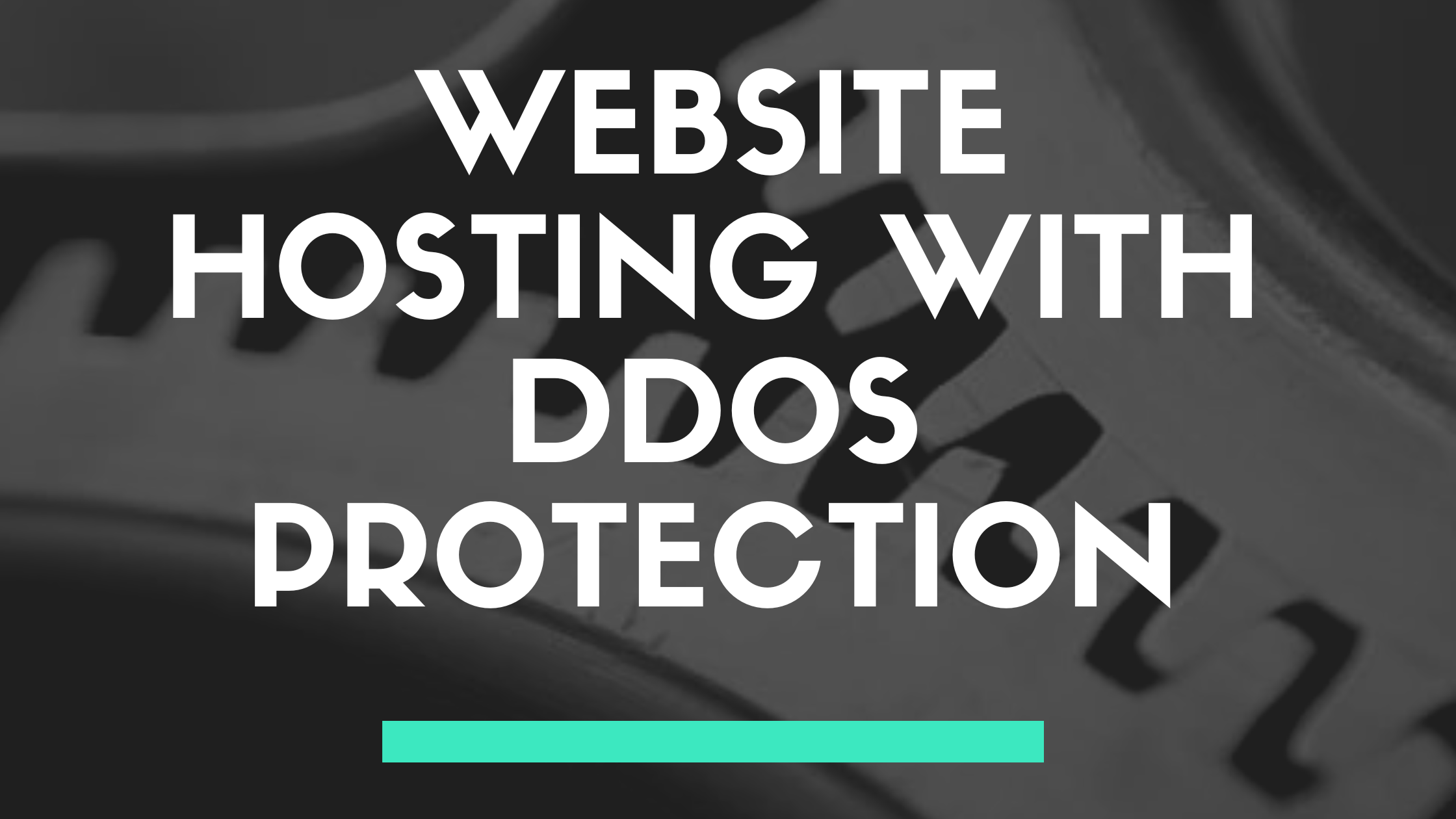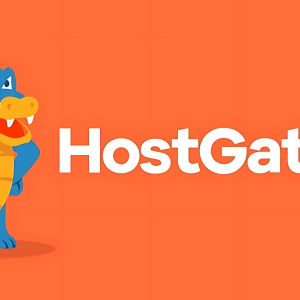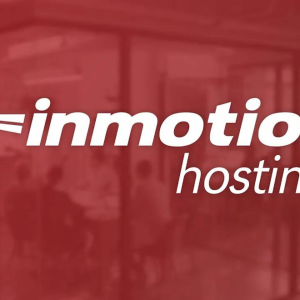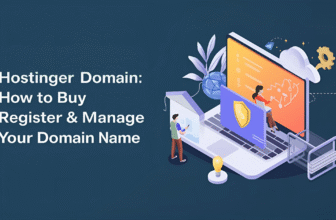
Website hosting with DDoS protection is crucial for ensuring the security of your website, especially if you’re running a business or an e-commerce platform. Distributed Denial of Service (DDoS) attacks can overwhelm your website, causing it to crash or become unavailable to visitors. A reliable hosting service with built-in DDoS protection can help mitigate these risks and keep your website online during a cyber attack.
What is DDoS Protection in Web Hosting?
DDoS protection in web hosting is a feature that helps protect your website from malicious traffic designed to overload and crash your site. These attacks often target high-traffic websites and can cause significant disruptions if not prevented.
Why Do You Need DDoS Protection?
- Prevent Downtime: DDoS attacks can cause your website to go offline for extended periods, leading to loss of revenue and trust from customers. DDoS protection minimizes the risks of such downtime.
- Enhanced Security: DDoS protection adds an extra layer of security by filtering out malicious traffic before it reaches your website.
- Improve User Experience: DDoS protection ensures that your website stays accessible and responsive, even during an attack, providing a smooth experience for your visitors.
Top Hosting Providers Offering DDoS Protection
Here are some of the top website hosting providers offering DDoS protection:
- AWS Shield: AWS Shield is a powerful service designed to protect websites from DDoS attacks, offering advanced security features to ensure uptime and stability. With its two tiers, AWS Shield Standard and AWS Shield Advanced, users can benefit from real-time attack detection, automatic mitigation, and robust firewall protections. AWS Shield Advanced, which includes 24/7 access to the AWS DDoS Response Team (DRT) and additional protections for critical applications, starts at $3,000/month, making it ideal for high-traffic websites needing comprehensive security.
- HostGator: Known for their reliable hosting services, HostGator provides DDoS protection as part of their security features. Plans with DDoS protection start at $3.95/month.
- Leading web hosting provider since 2002
- 99.9% uptime guarantee for reliability
- Competitive pricing and 45-day money-back guarantee
- 24/7/365 customer support
- User-friendly cPanel for easy management
- Scalable plans for all business needs
- Real customer testimonials
- Hosting plans: Shared, VPS, Dedicated, and WordPress
- Additional services: Website Builder, Domain Registration, SSL Certificates, Email Hosting
- InMotion Hosting: InMotion offers advanced DDoS protection with its hosting services, protecting your site from large-scale attacks. Plans start at $2.29/month.
- Experience top-tier web hosting with InMotion Hosting
- Lightning-fast speeds and superior performance
- Robust security features to protect your website
- Award-winning 24/7 customer support
- Trusted by over 300,000 domains worldwide
- Choose from a range of hosting plans to suit your needs
- Eco-friendly initiatives and green data centers
- Join thousands of satisfied customers and unlock your online potential
How DDoS Protection Works
DDoS protection works by filtering malicious traffic before it reaches your server. Hosting providers use a combination of techniques such as traffic rate limiting, IP filtering, and CAPTCHA challenges to ensure that only legitimate traffic reaches your site.
Benefits of Website Hosting with DDoS Protection
- Reduced Risk of Downtime: Your website remains online even during an attack.
- Increased Trust: Users will feel more secure browsing your website, knowing that it is protected from cyber threats.
- Peace of Mind: You don’t have to constantly worry about your website being attacked.
Pricing for Website Hosting with DDoS Protection
The cost of website hosting with DDoS protection varies depending on the hosting provider and the level of protection. Typically, prices start around $3.95 per month for basic protection, with more advanced options costing upwards of $50/month.
Where to Buy Website Hosting with DDoS Protection
Website hosting with DDoS protection can be purchased directly from the hosting provider’s website. Most reputable hosting services offer it as part of their security package, with some offering additional protection for an extra cost.
How to Choose a Hosting Provider with DDoS Protection
When selecting a hosting provider with DDoS protection, ensure that the service offers:
- Scalability: The provider should be able to handle large traffic spikes, especially if your website grows.
- Customizable Protection: Look for hosting providers that allow you to adjust the level of DDoS protection based on your needs.
- 24/7 Support: Choose a provider with excellent customer support in case you face a DDoS attack.
Conclusion
Website hosting with DDoS protection is essential for maintaining the security and availability of your website. By choosing a hosting provider with built-in DDoS protection, you can ensure that your site stays safe from attacks and continues to provide a positive user experience for your visitors.
FAQs about Website Hosting with DDoS Protection
1. What is the difference between AWS Shield Standard and AWS Shield Advanced in terms of DDoS protection?
AWS Shield is a prominent service designed to protect websites from DDoS attacks. It comes in two tiers: Standard and Advanced. AWS Shield Standard is included for free with AWS services and provides automatic protection against most common DDoS attacks using real-time detection and mitigation. However, for businesses that need additional protection, such as advanced threat analytics, 24/7 access to a DDoS Response Team (DRT), and enhanced security features for critical applications, AWS Shield Advanced is ideal. This paid service, starting at $3,000/month, offers more comprehensive protection, making it suitable for high-traffic websites or businesses that rely heavily on their online presence.
2. Can DDoS protection be customized to my website’s specific needs?
Yes, many hosting providers that offer DDoS protection allow you to customize the level of protection based on your website’s needs. For example, some services offer traffic rate limiting, IP filtering, and CAPTCHA challenges that can be adjusted depending on the severity of threats your site faces. Additionally, certain hosting providers like InMotion Hosting provide advanced DDoS protection plans with configurable options, allowing you to scale up your defense as necessary.
3. How can I test if my hosting provider’s DDoS protection is effective?
While testing DDoS protection can be tricky due to the risk of unintentionally launching an attack, reputable hosting providers often offer performance and security monitoring tools that allow you to evaluate the effectiveness of DDoS protection. These tools can give you insights into traffic patterns, server load, and whether any malicious traffic is being blocked. Additionally, providers like AWS and HostGator offer real-time monitoring features to track any DDoS threats. If you suspect vulnerabilities, you may want to consult the provider’s support team for a professional assessment.
4. How does DDoS protection impact the performance of my website?
DDoS protection, when properly implemented, typically does not affect the performance of your website for legitimate users. Hosting providers use traffic filtering and rate-limiting techniques to ensure that only legitimate traffic reaches your server. In some cases, if an attack is being mitigated, it may result in a slight delay in processing or response times. However, this minimal impact is generally a small price to pay for the protection it offers, especially when compared to the potential downtime and revenue loss caused by a successful DDoS attack.
5. Does DDoS protection guarantee that my website will never experience downtime?
While DDoS protection significantly reduces the risk of downtime, it does not guarantee that your website will always stay online during an attack. The protection systems are designed to identify and mitigate most attacks, but the size and complexity of an attack can overwhelm even the best protection services in some rare cases. That being said, services like AWS Shield Advanced and other hosting providers with robust security protocols can offer proactive mitigation strategies that minimize downtime and ensure your website stays up during most DDoS attacks.
6. What are the common types of DDoS attacks, and how does hosting with DDoS protection defend against them?
DDoS attacks come in various forms, including:
- Volume-based attacks: These involve overwhelming the server with a massive volume of traffic. DDoS protection services use traffic filtering to identify and discard malicious traffic.
- Protocol attacks: These target the server’s resources by exploiting protocol weaknesses, such as SYN floods. DDoS protection identifies and blocks malicious packets.
- Application layer attacks: These attack the website itself by targeting specific vulnerabilities in the application. Protection systems use deeper filtering techniques to identify harmful requests before they reach your website.
By filtering out or mitigating malicious traffic before it can reach your server, DDoS protection services prevent most of these types of attacks from affecting your website.
7. Can I add DDoS protection to an existing hosting plan, or is it included only in specific plans?
Many hosting providers offer DDoS protection as an optional add-on to existing plans, so it is possible to add this feature to an existing hosting service. However, some providers may include basic DDoS protection as part of their hosting packages, while others might offer advanced protection at an additional cost. For example, HostGator includes basic DDoS protection in its plans, while more robust protection might require an upgrade or a separate service. If you’re unsure, contact your hosting provider’s support team to inquire about adding or upgrading DDoS protection.
8. How does DDoS protection affect my website’s SEO?
DDoS protection generally does not directly affect your website’s SEO. However, if a DDoS attack causes your website to go offline for an extended period, it could negatively impact your SEO rankings due to decreased site availability. Search engines like Google consider site uptime as a ranking factor, so prolonged downtime may result in lower rankings. By ensuring your website remains accessible during attacks, DDoS protection indirectly helps preserve your SEO performance.
9. Are there any downsides to using a hosting provider with DDoS protection?
While DDoS protection is essential for securing your website, there are a few potential downsides:
- Cost: Advanced DDoS protection services can be costly, especially for larger businesses or high-traffic websites.
- Performance issues: In some cases, protection mechanisms might cause slight delays, though this is generally minor and not noticeable to end users.
- Overblocking: DDoS protection systems rely on algorithms to filter traffic, which may occasionally result in false positives and block legitimate users. Choosing a hosting provider with adjustable settings can help minimize this issue.
Overall, the benefits of DDoS protection far outweigh these potential downsides, particularly for business websites that cannot afford prolonged downtime.
10. What steps can I take to further enhance my website’s security beyond DDoS protection?
While DDoS protection is a critical element of website security, there are additional steps you can take to further protect your site:
- Use SSL encryption: SSL certificates encrypt the data transferred between your website and its users, improving security.
- Regularly update software: Keep your website software, plugins, and themes updated to prevent vulnerabilities from being exploited.
- Implement a Web Application Firewall (WAF): A WAF can filter out malicious requests and protect your website from various security threats.
- Use strong passwords and multi-factor authentication (MFA): Ensure that all accounts related to your website, especially admin accounts, use strong, unique passwords, and enable MFA for added security.
- Backup your website regularly: Regular backups ensure that in the event of a cyberattack, your website can be quickly restored to its previous state.
By combining DDoS protection with these additional security measures, you can significantly enhance the overall security of your website.









